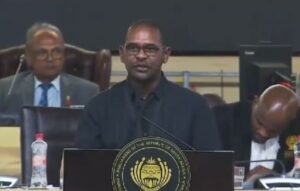The Information Communication Technology Union (ICTU) has voiced significant concerns over what it perceives as unjustifiable actions by South African banks in terminating the accounts of their clients. This critique spotlights the ongoing tension between individual patrons and conglomerates, such as the Sekunjalo Group, and leading financial institutions.
The crux of ICTU’s unease lies in the banks’ justification for these closures. Despite the legal frameworks and duties banks are subject to, the rationale behind such decisions often appears insubstantial, described by the union as either “fishing or unconvincing”. Banks are, undoubtedly, mandated to uphold stringent ethical and legal standards aimed at curtailing financial misdeeds like money laundering and corruption. However, ICTU insists that this responsibility should not translate into unlawful conduct.
A vocal critic, Professor Sipho Seepe, has cast a spotlight on the motives and timing behind these account terminations, notably those of former president Jacob Zuma by First National Bank (FNB). According to ICTU, such moves not only tarnish the reputations of the individuals and entities involved but also precipitate dire economic ramifications, including job cuts and the necessity for companies to undergo restructuring.
In a striking accusation, the union claims that financial institutions are being wielded as political tools, manipulated by state actors to pursue specific individuals and organizations. This is alarmingly illustrated by the repeated closures of accounts belonging to the Sekunjalo Group, a situation that ICTU warns could jeopardize up to 8,000 jobs.
Moreover, the union has expressed dissatisfaction with the judiciary and government for their perceived lethargy in confronting questionable banking practices and widespread corruption. This inaction, ICTU argues, reflects a concerning bias and a failure to hold financial institutions to account.
The call to action from ICTU is a plea for an impartial investigation into the conduct of banks, highlighting the necessity for transparency and accountability amidst accusations of corruption within the sector. This issue throws a harsh light on the intricate weave of politics, finance, and corporate influence that characterizes South Africa’s economic environment.

















